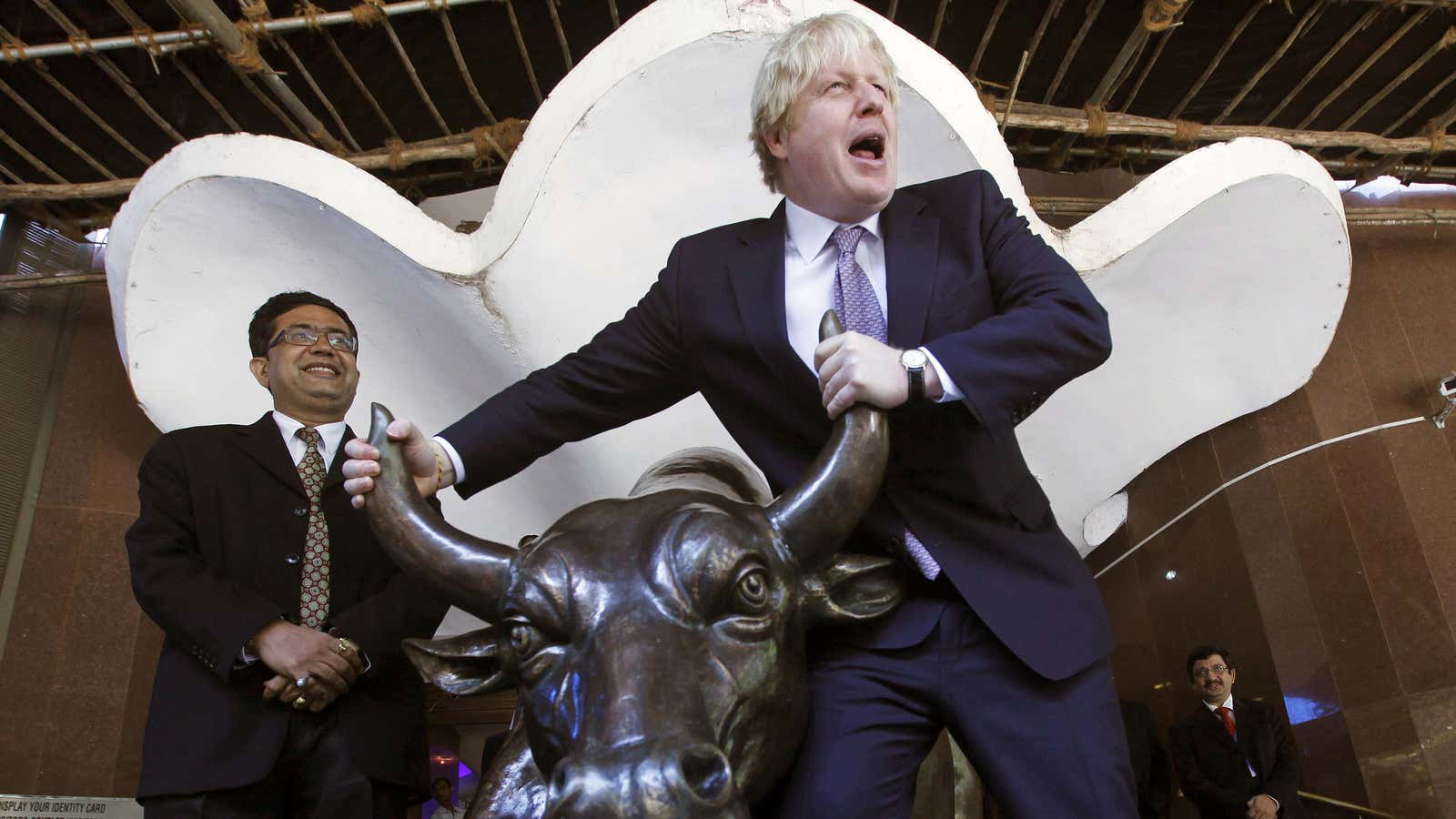Just one day after the Scottish referendum on independence, mayor of London Boris Johnson grabbed his chance. Now that the decentralization of power had been made a topic of discussion, he announced that it was about time for the government of the United Kingdom to grant greater sovereignty to the city of London. Especially when it comes to the generation and expenditure of tax income, Johnson thinks that the capital of Britain needs a bigger say.
Margaret Hodge, Labor’s member of parliament for the London constituency of Barking, made it clear that she agrees with Johnson. In an opinion piece published in the London Evening Standard, she observed that the mayor of New York is allowed to spend 50% of the city’s own tax income, while the Mayor of London can only keep 7%.
Johnson and Hodge have a point. Considering the constant battle to keep up with rival global cities and the costly nature of tackling local issues, London is in desperate need of more autonomy.
Take the future of London’s public transport, for example. According to London First, a not-for-profit organization representing various commercial stakeholders, fiscal devolution would hugely simplify the process of funding infrastructure projects such as Crossrail 2. Plans for the realization of Crossrail 1—a new, partly underground railway line that will connect Maidenhead and Heathrow in the west to Shenfield in the east via central London, due to be completed in 2019—took almost 35 years to come to fruition, partly because of the uncertainties over the funding.
Then there’s London’s housing crisis. Earlier this week, the council of the borough of Croydon in South London announced plans for 8,300 new homes and 2.8 million square feet of offices, meant to provide the city with 23,600 new jobs. To implement its plans, however, the council will need to free up around £5.25 billion ($8.5 billion), a sum of money they want to raise through further devolution of fiscal power. Croydon isn’t alone. Their call was backed up by the Society of London Treasurers, a group made up of the senior finance officers of every London borough.
Stephen Syrett, professor of Local Economic Development at Middlesex University London, has a similar view. “There is a very strong argument to be made for granting London more autonomy,” he says. “London has a number of particular problems. The city is growing very strongly and has various particular issues. The need for London to have more control over its tax-raising powers, so that it can invest in areas it needs to invest in, is a very strong argument for devolution.”
There’s more to it though. Not only does London’s lack of power make it harder for the city to finance its plans for growth and development, it also has repercussions on the governance of the city. According to Kathleen Scanlon, a researcher for the London School of Economics who specializes in urban policy and housing finance, this status quo is bad for democracy. “At the moment, nobody wants to be a local politician,” she says. “The best and most ambitious people stay away from it.”
Earlier this year, an opinion poll carried out by surveyor Censuswide showed that one in five Londoners—and almost half of all 25-34-year-olds—would favor a complete breakaway from the UK. According to one columnist in The Independent, London’s GDP as a sovereign state would be twice as high as Singapore’s, the Asian city state that the capital is so often compared to and ranked against.
Syrett calls the idea of London as a modern day city-state “faintly ludicrous” and neither feasible nor desirable. “London is heavily interdependent with the rest of the country. Yes, you can focus on the global economy, but all the talent that settles in London comes from the rest of the United Kingdom. Furthermore, London continues to benefit massively from national public spending.”
While urban autonomy might be a pipe dream, devolution of power to the Mayor of London and the city’s councils seems unavoidable. The capital of Britain needs its own money to face the future, and it needs to be governed in a well-functioning, democratic manner. So while Scotland’s call for a certain degree of independence from Westminster might sound the loudest, the United Kingdom’s government would be wise to listen to the plight of Johnson and other London politicians as well.
